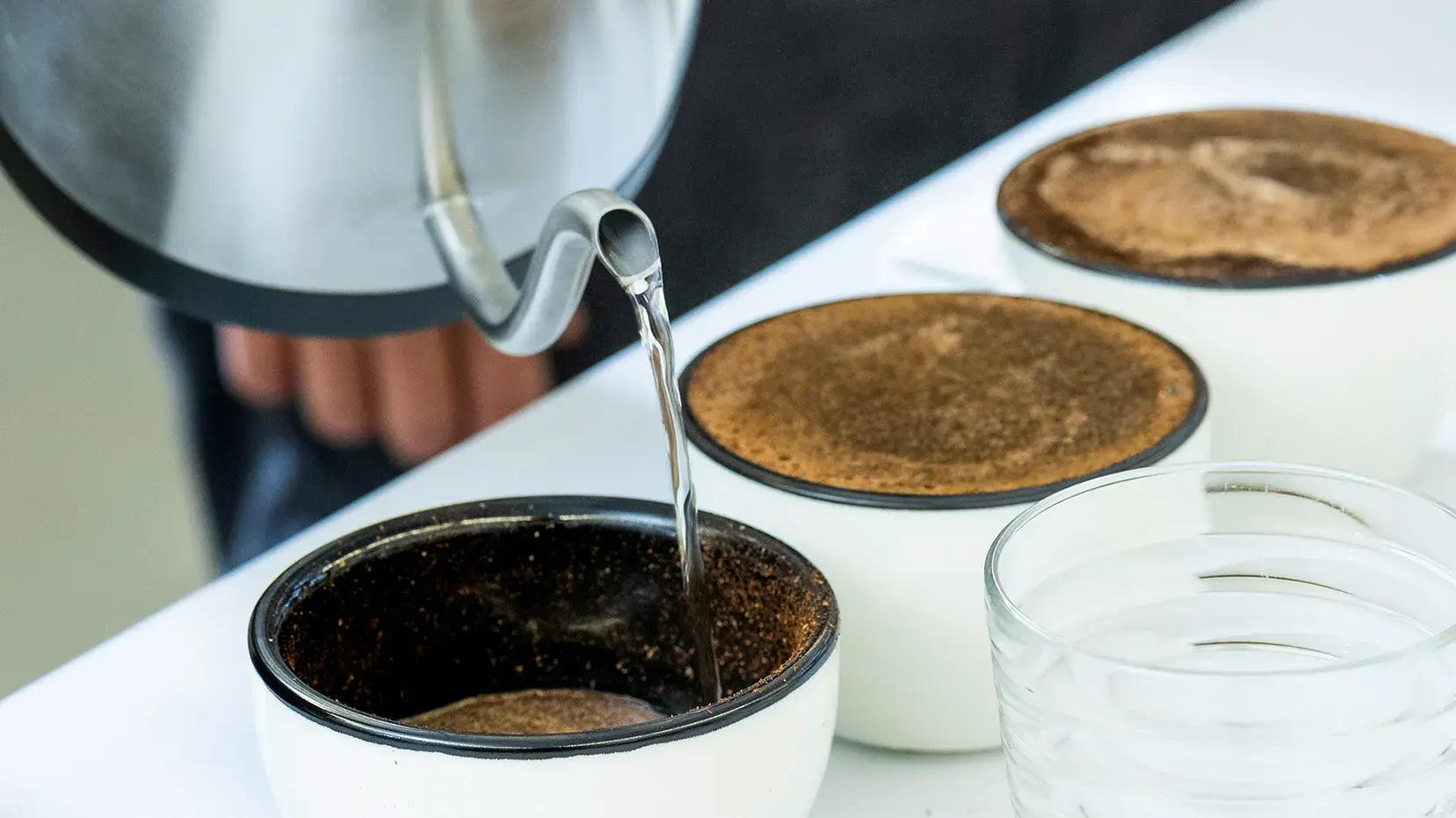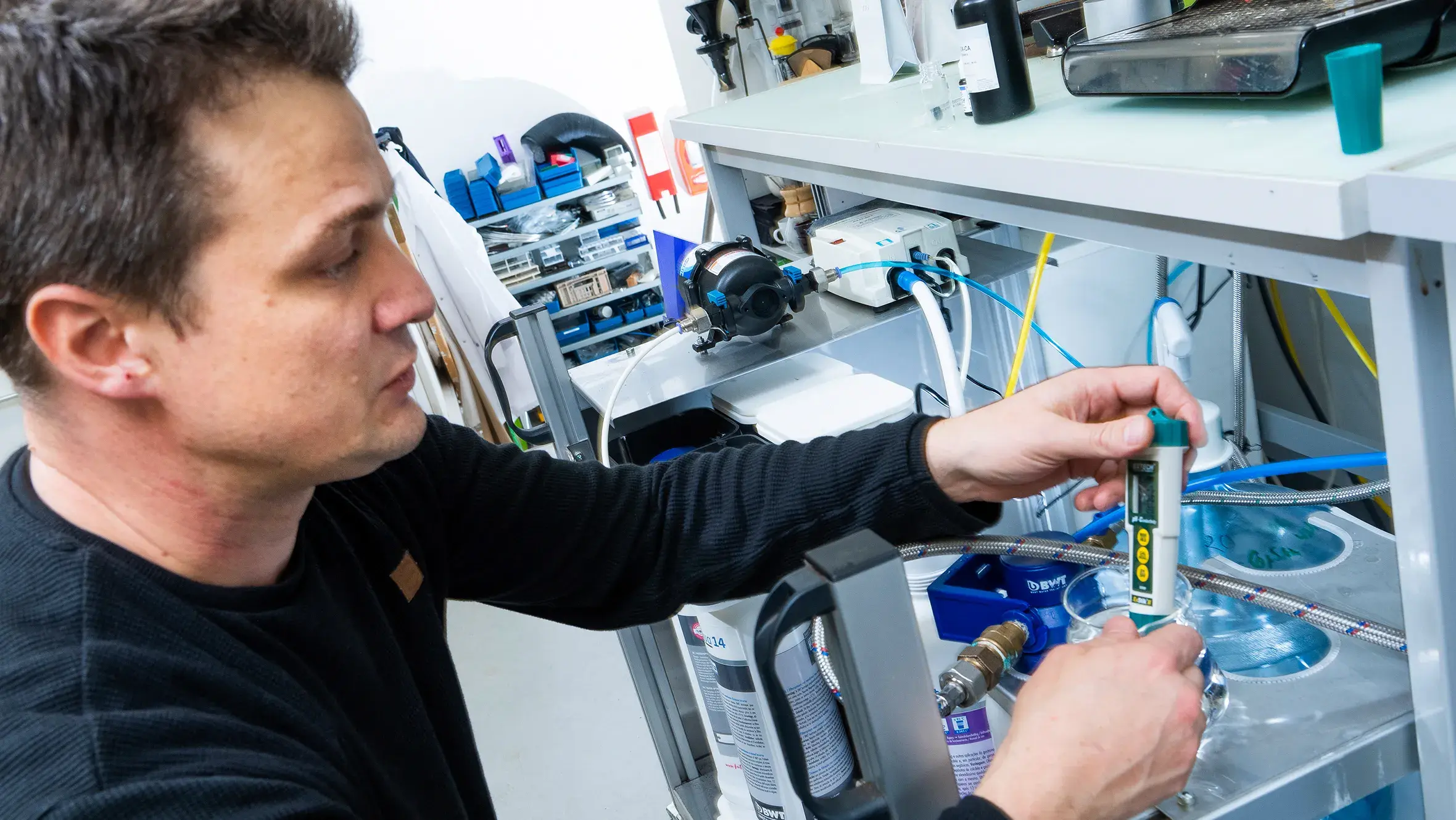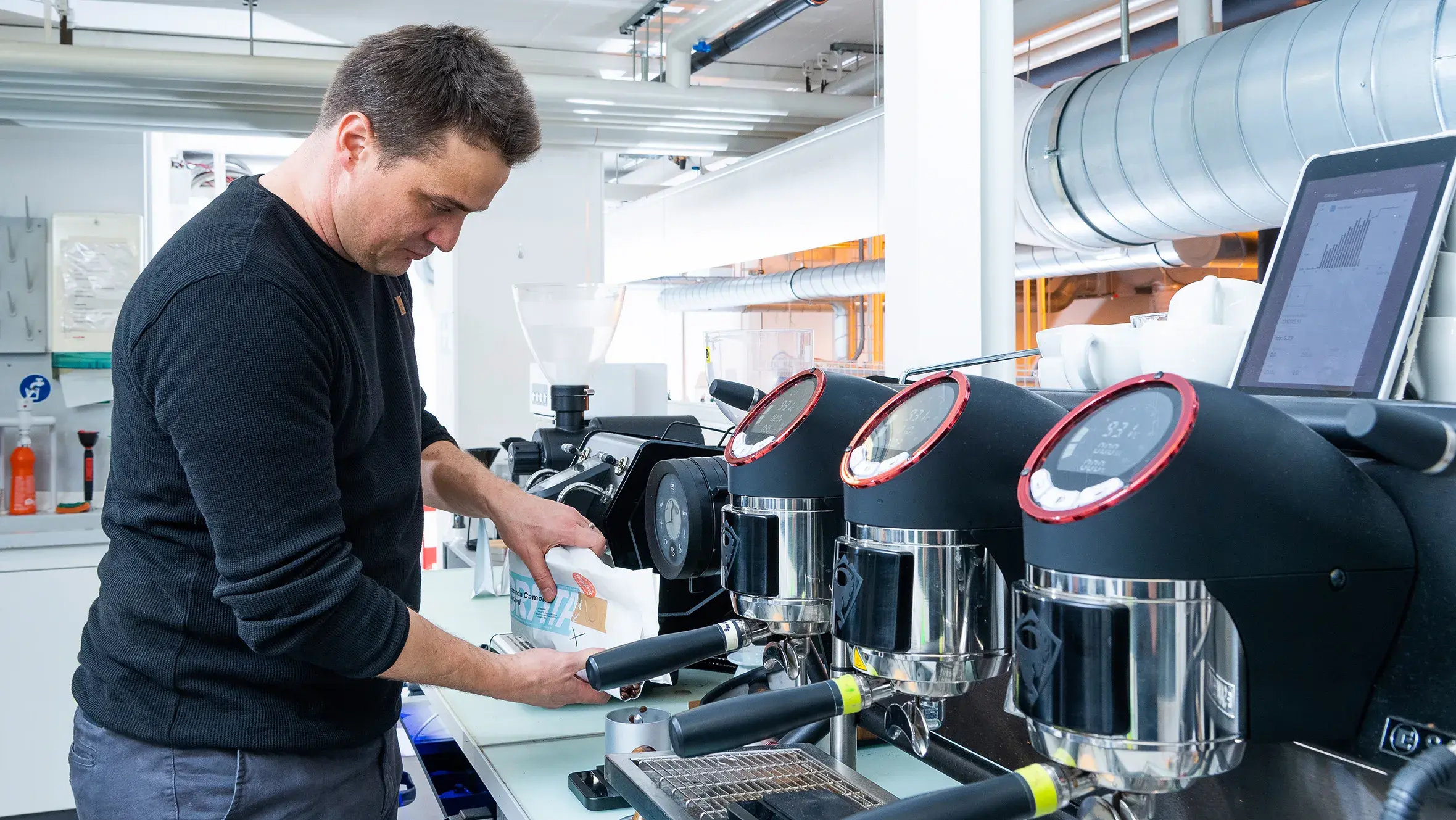Research Field Extraction and Sensory Evaluation
Extraction of coffee, analysis of coffee aroma, sensory analysis of coffee, water treatment and characterization
Lead: Dr. Marco Wellinger
The research field "Extraction and Sensory Evaluation" involves the study of coffee aromas (PTR-ToF-MS and GC-MS), coffee sensory analysis (certified Q Grader for Arabica and Robusta) as well as water treatment and characterisation.
Reference Projects
Benchmarking of fully-automatic Coffee Machines
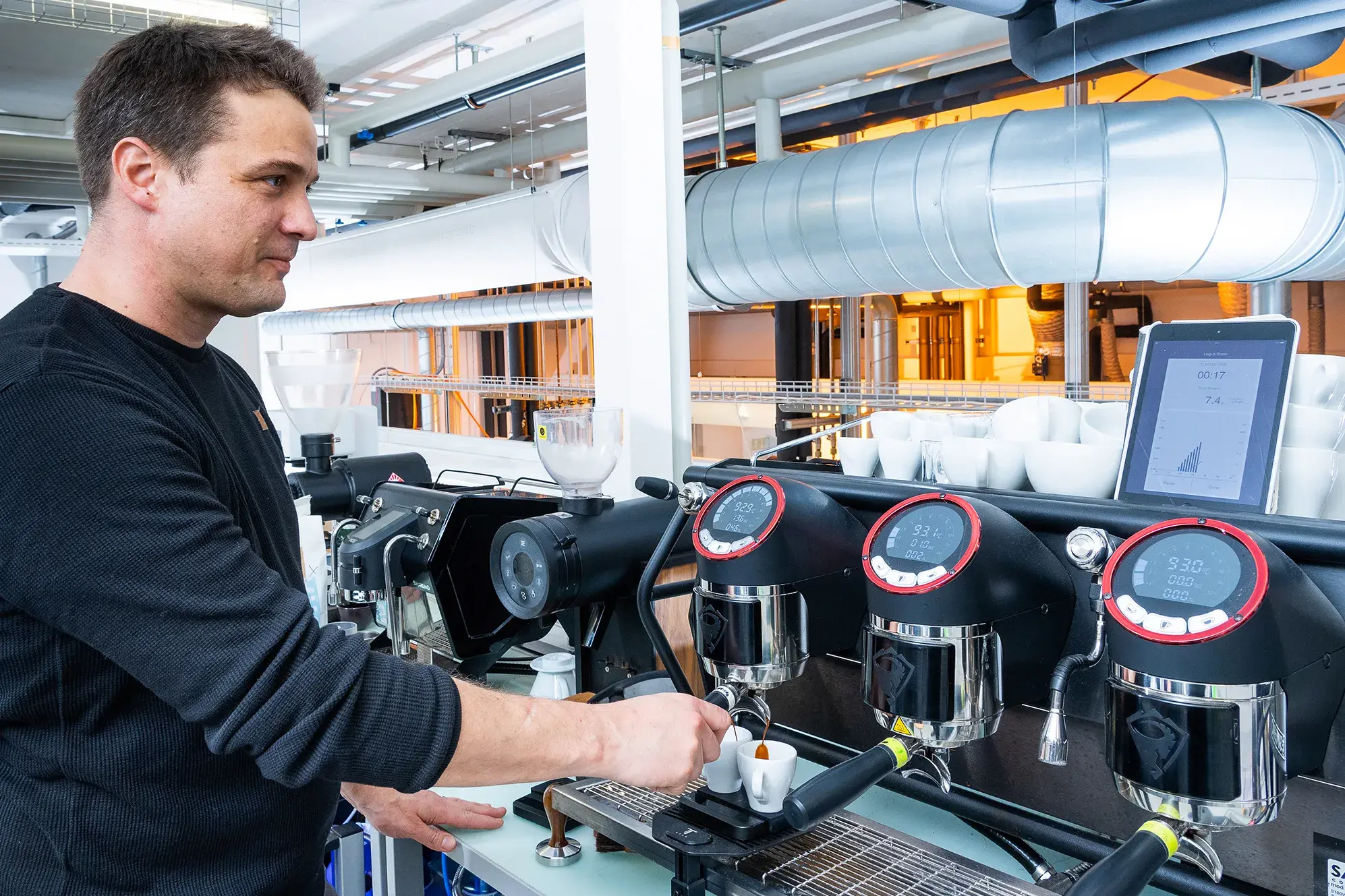
Project Name: Benchmarking of Full Automatic Coffee Machines
Project Partner(s): Schaerer (2016-17), Groupe SEB (2018-19), Franke (2018-19), Miele (2020-21)
Project Status: completed
Parameters that list the technical characteristics of the machine, such as pump pressure, pump type or grinding throughput, only provide an incomplete overview of the actual potential of a coffee machine. In these projects we were analyzing the physical, chemical and sensory properties of the produced beverages at factory settings as well as with modified settings aiming to create equal starting conditions (e.g. equal coffee dose input). Some of the results have been used in presentations at SCA events (for the first time at SCA expo in Seattle 2018).
Listen to the SCA podcast #52: "Tracking and Tweaking Your Extraction" where Dr. Marco Wellinger explains the results of his studies.
Next generation fully automatic coffee machine
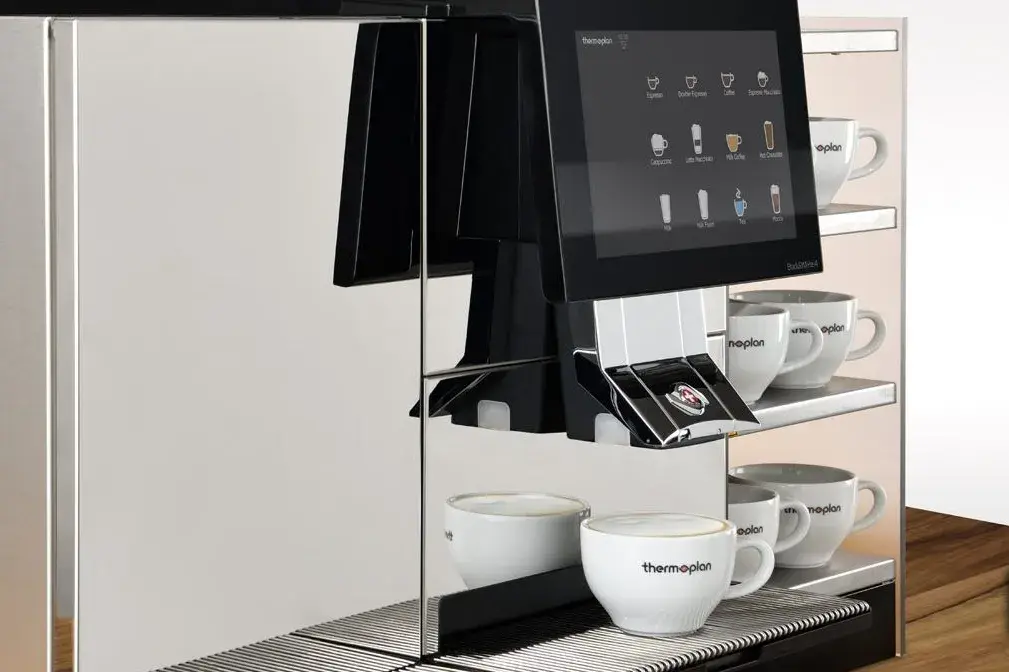
Project Name: Next generation fully automatic coffee machine – fusion of cup quality, convenience, and sustainability
Project Partner(s): Thermoplan AG
Funding Partner: Innosuisse (58339.1 IP-ENG)
Project Status: ongoing
In this project, the aim is to develop the next generation fully automatic coffee machine that meets highest espresso quality demands, allows for individualization, and reduces environmental impact of coffee consumption. It is designed to integrate key benefits of professional and single serve machines while avoiding their drawbacks. In this projects technologies and methods are developed to allow for a higher extraction yield which allows to reduce the amount of coffee used per beverage. This improves the overall coffee usage and therefore has a positive impact on profitablility and environmental impact.
Grinding system for coffee
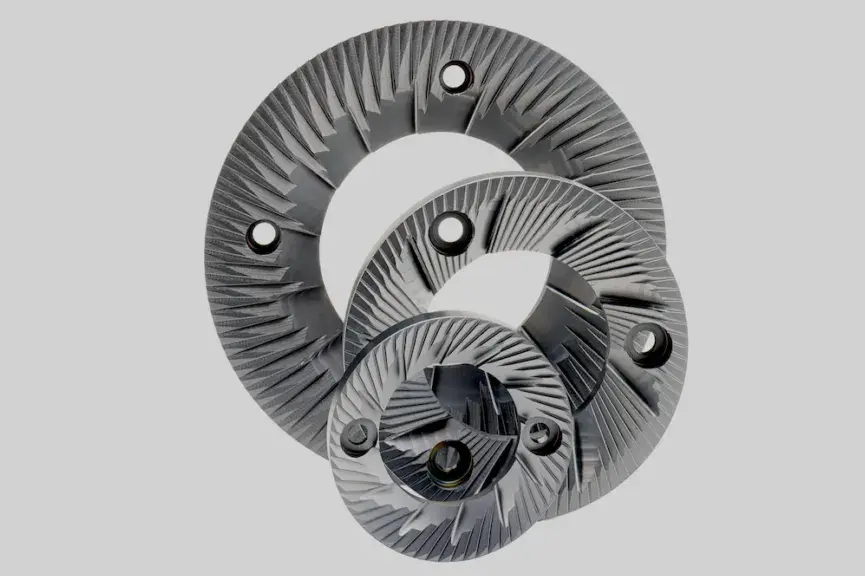
Project Name: Grinding system for coffee: fast, high output while minimizing maintenance and ensuring longevity
Project Partner(s): Helfezi AG
Funding Partner: Innosuisse - (67478.1 INNO-ENG)
Project Status: ongoing
In this project new innovations to improve grind quality and burr longevity are explored. The assessment of grind quality is done by physical measurements (particle size distribution) as well as sensory evaluation.
Benchmark for manual filter coffee systems
Project Name: Benchmark for manual filter coffee systems
Project Partner(s): Melitta Europa GmbH & Co. KG
Project Status: completed - 2020-2022
The manual coffee beverage preparation is a simple way for the extraction and filtration of roasted and ground coffee at home. The objective of this project was the comparison of five different pour over systems. This should be realized be using a highly reproducible extraction method that minimizes sources of variation while mimicking what a specialty consumer brewing filter coffee at home can realize. The resulting beverages were analyzed for the chemical composition as well as their sensory properties be a evaluation by Q-graders.
Educational Resources on Water for Coffee
Project Name: Water Booklet and Educational Resources on Water for Coffee
Project Partner(s): BWT water + more GmbH
Project Status: ongoing
The project consists of three main parts:
1. Develop content and implement e-learning session on “Water for Coffee” for the postgraduate degree “CAS on Coffee Excellence” of the ZHAW Coffee Excellence Center.
2. Create a comprehensive summary of key messages and recommendations for practitioners – a practical concentrate on Water for Coffee. It will be based on the comprehensive BWT-ZHAW water for coffee Handbook and is aimed at not-scientists and non-technical coffee practitioners.
3. Issue a joint BWT-ZHAW water handbook based on existing resources and a give comprehensive review of the best use of water and water treatment methods for coffee. It contains the following chapters.
Reports, articles and media contributions
- Dr. Marco Wellinger "New Target Zones for Water"(PDF 608,8 KB). Short Presentation World of Coffee, Connect & Learn, Copenhagen, June, 2024.
- SCA podcast #52: "Tracking and Tweaking Your Extraction" with Dr. Marco Wellinger.
- Coffee Talk am Swiss Coffee Festival 2021: "Kaffeewasser mit Dr. Marco Wellinger"
- Kaffeemacher - Youtube: "Kaffeewasser mit Dr. Marco Wellinger - Kaffemacher-Sprechstunde | Live", 2020.
- Dr. Marco Wellinger, SCA 25 Magazine, Issue 9: "Water and Coffee Acidity: How to Adapt Your Water for Different Extraction Methods"
- Dr. Marco Wellinger, BWT White Paper: "Das Mineralienverhältnis im Wasser bestimmt den Extraktionsprozess und den Geschmack des Kaffees"
You want to learn more?
Contact Dr. Marco Wellinger for further information about the research field "Extraction & Sensory Evaluation".
